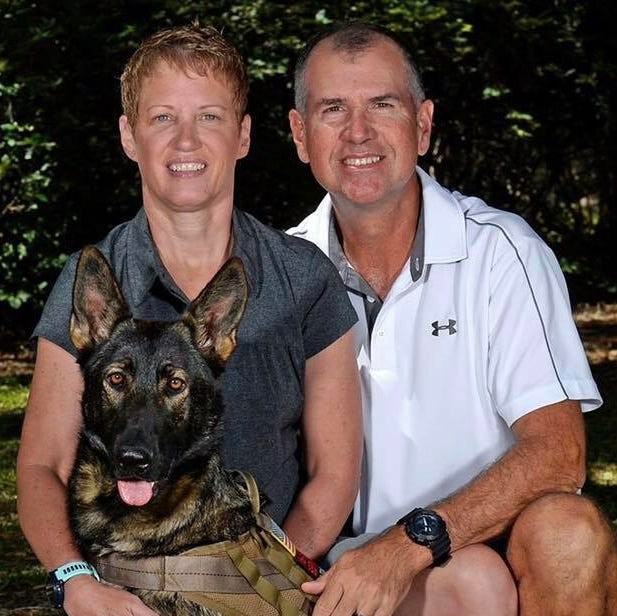Most people assume that caregivers are female, but more than 40 percent of caregivers are male, a little known fact because of the stigma. But according to Army veteran Brian Vines who cares fulltime for his Army veteran wife who has TBI and PTSD, there is nothing more manly ... there is no greater love than being a caregiver to a loved one. Caregivers—both male and female—he has met and befriended share his opinion.
Shortly after Brian and Natalie Vines met in the military in 1998, their unit deployed to Kuwait. Fueled by assignments on nearby bases, common interests, and shared military experiences, their friendship grew into a romantic relationship that eventually led them to the alter. Brian and Natalie loved their careers in the U.S. Army — Brian served for 28 years and Natalie for 21. After several sustaining several TBIs and living with PTSD, Natalie retired from the Army.
And in 2012, Brian, who lives with PTSD as well, decided to retire to take care of his wife. Since then, both Brian and Natalie also found significant growth and healing through their participation in the WWP Independence Program. Brian volunteers as a peer mentor helping his fellow veterans on WWP Project Odyssey® events.
For information about treatments for TBI and PTSD, please visit The Treatment Hub.
Being a male caregiver, one of the things I was most concerned with at the beginning is would I be accepted into the caregiver population, which was predominantly female. When I went on my first caregiver retreat, I was met with open arms, that they allowed me to be in their club. And we found that we have a lot of things in common.
Particularly it was great to hear kind of the woman’s side of what she’s going through so that I could then go back and apply it to being a caregiver for my wife. I belong to a couple of support groups, some that are on Facebook, others that we meet periodically. And it’s great just talking with other caregivers and they don't judge me because I’m a male.
As you may well know, there’s a little bit of a stigma behind a male being a caregiver. In fact, the estimates on the number of caregivers is about 40 percent of caregivers are male caregivers, but a lot of times they don't self-identify as a caregiver because of that stigma. And I would say there’s nothing less than manly about being a caregiver. In fact, there’s no greater love you can show someone, whether it be your spouse or a sibling or your children or your parents, there’s no greater love that you can give them but to be their caregiver.
BrainLine is powered in part by Wounded Warrior Project to honor and empower post-9/11 injured service members, veterans, and their families.
About the author: Brian and Natalie Vines
Shortly after Brian and Natalie Vines met in the military in 1998, their unit deployed to Kuwait. Fueled by assignments on nearby bases, common interests, and shared military experiences, their friendship grew into a romantic relationship that eventually led them to the alter. Brian and Natalie loved their careers in the U.S. Army — Brian served for 28 years and Natalie for 21. After several sustaining several TBIs and living with PTSD, Natalie retired from the Army. And in 2012, Brian, who lives with PTSD as well, decided to retire to take care of his wife. Since then, both Brian and Natalie also found significant growth and healing through their participation in the Wounded Warrior Project® Independence Program. Brian volunteers as a peer mentor helping his fellow veterans on WWP Project Odyssey® events.

